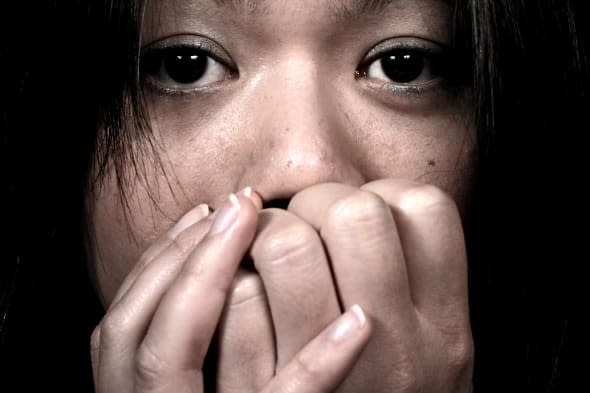How to cope with panic attacks

Everyone gets anxious from time to time, when facing an interview or taking an exam for example, but for some people anxiety can cause a sudden and overwhelming sense of panic. If you've had a panic attack, here are some tips on how to cope and prevent further episodes occurring.
Related Searches
Panic attacks are experienced as an intense rush of fear, apprehension and anxiety. Physical symptoms include nausea, sweating, trembling, rapid breathing, palpitations, chest pain and dizziness. As well as an overwhelming sense of fear, some sufferers report a sense of disorientation or unreality, as if they are detached from the world around them.
When we experience something we perceive as a threat, the body goes "fight or flight" mode. Breathing quickens as your body tries to take in more oxygen ready to power your muscles to face the threat or run away. At the same time, the body is flooded with hormones, such as adrenaline, which cause the heart to beat rapidly.
Some people may have one or two panic attacks each month, triggered by a specific type of event, such as crowded places, others may have several attacks a week. For many people, they happen suddenly and for no apparent reason. Most panic attacks last between five and 20 minutes, normally peaking within 10 minutes.
%VIRTUAL-AFCSponserAds%
Slow your breathing
Slowing your breathing is one of the best ways to ease your symptoms during an attack. Try breathing in deeply through your nose and breathing out slowly through your mouth. Repeating a word, such as "calm", in your mind may also help. Once the level of carbon dioxide in your bloodstream returns to normal, you should start to feel better.
Other things that may help
- Relaxation techniques, such as meditation
- Regular muscle stretching and relaxation
- Eating regular meals to keep your blood sugar levels stable
- Eliminating caffeine, alcohol and smoking, which can make panic attacks worse
When to see your GP
Panic attacks can be very frightening and make you feel as if you're about to die, particularly if you experience palpitations and chest pain, but they are not life threatening. An attack won't cause you any physical harm, and it's unlikely that you'll be admitted to hospital after having one. However, it's wise to see your GP to rule out an underlying physical cause if your panic attacks continue for more than 20 minutes, despite using breathing techniques.
You should also consult your doctor if you feel unwell after your breathing returns to normal, or if you experience a rapid, irregular heartbeat or chest pains after your panic attack.
Panic disorder
If you experience repeated and unexpected panic attacks followed by at least four weeks of continuous worry or concern about having further attacks, you may be diagnosed with panic disorder. Once a diagnosis is made, your doctor may suggest psychological therapy and/or medication.
Do you suffer from panic attacks? What advice would you give others? Leave your comments below...




